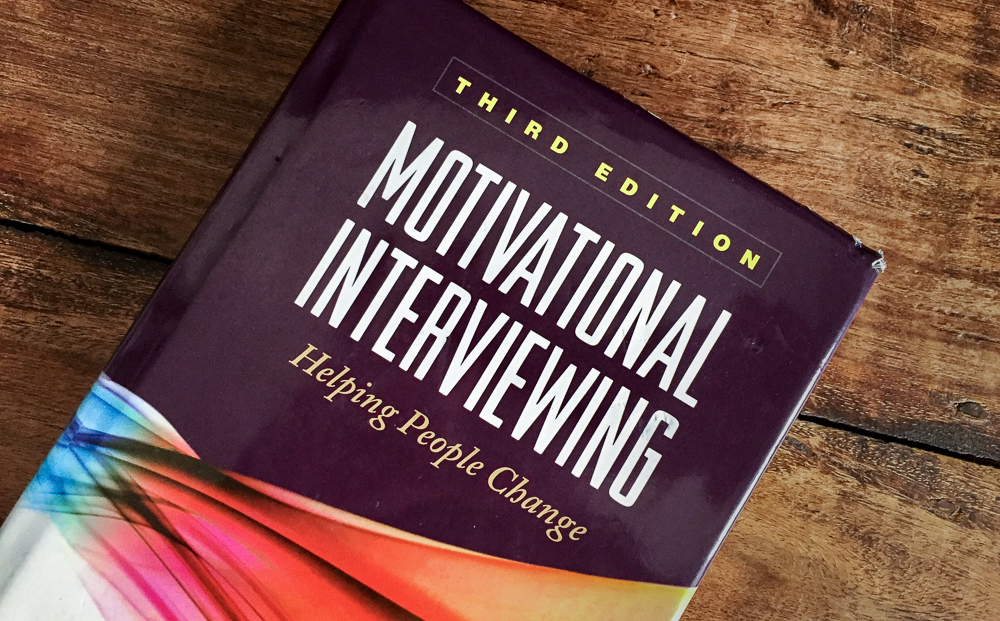When I talk to people about Motivational Interviewing (MI), there often seems to be an assumption that MI is a job interviewing technique. Well, it is not.
So what is Motivational Interviewing?
MI is a hugely powerful and strategic approach that helps to arrange conversations so that people talk themselves into change based on their own intrinsic values, goals and interests.
It’s a person centred approach to communication and conversations about change which was first pioneered by William R. Miller and Steven Rollnick and introduced in 1983, mainly to tackle the problems of addiction and substance misuse, but the benefits actually have a much broader use, so since then it has been increasingly used in healthcare, criminal justice, education, welfare to work, social work and other areas of health promotion and behavioural change by people who regularly engage in conversations about change.
Very often people need to or want to change, with good reason. They know the benefits of change and yet, they don’t change.
Why?
It’s not because they don’t know how and don’t have solutions to their problems ( although that can also be a contributing factor), but because they feel two ways about that change- they see the reasons to change, but also reasons not to.
To put it in context, an example could be:
“I want to give up smoking because it is bad for me and my health, but I enjoy it and it helps me relax” or, “I want to go back to work because it will be good for my confidence and social interaction, but I am comfortable with my benefits and my current situation”.
MI helps to clarify and resolve that ambivalence about change and helps people take steps toward change… but there is much more to this approach.
Language plays a huge part and MI helps to build awareness of the language that people use that either helps, or prevents them from moving forward. Research shows that “change talk” ( language indicating change) is the most important predictor of successful change and the interviewer’s role is to elicit this kind of language from the client.
Motivational Interviewing also helps to build awareness of, and the resisting of, the “Righting Reflex” which is the natural desire to help people solve their problems by providing them with advice and solutions. We have good intentions in doing so, but what we often don’t realise is that by providing people with solutions to THEIR problems, we not only take the autonomy and ownership away from the person, but we can also create more defensiveness and resistance to change altogether.
MI strongly believes that the client already has all the answers to their problems, therefore change should not be imposed on them, but instead, it should be evoked from them allowing them to tap into their own reasons, motivation and resources to change and there are many ways that MI can support doing that effectively.
There are countless benefits of using Motivational Interviewing techniques, and integrating this approach into appointments / conversations with clients, staff and people in general, enabling more effective conversations, empowering them to take active steps to improve their wellbeing, their lifestyle and the choices they make. It reinforces clients’ abilities, strengths and stimulates behavioural change, leading to sustainment of outcomes.
I’ve been delivering MI training for over 6 years and regularly use MI within coaching sessions, so I have seen how powerful MI is in helping people change and improve their lives for the better.
If you would like to find out more about Motivational Interviewing or are interested in MI training for your team, please get in touch via hello@apexmindset.com as I would be happy to help.



